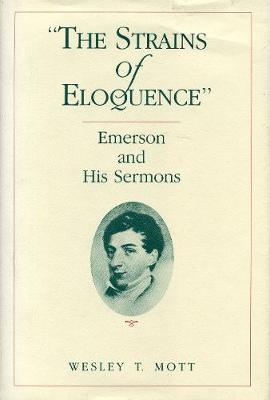The sermons of Ralph Waldo Emerson were central to his emergence as thinker and writer. This is the first extended study of the formative role of these long-neglected documents. Wesley Mott explores major topics and issues in Emerson scholarship: his vocational self-image; the significance and meaning of such quintessentially Emersonian concepts as self-reliance, the over-soul, and compensation; his sense of language his vision of America; his relation to Puritanism. Emerson s aphorisms, taken out of context, have enabled readers of every stamp to enlist him in their cause. Reformers, on the one hand, have claimed him as a prophet of social change, while, on the other hand, Henry Ford and Woody Hayes have found him a champion of conservative American values. These seemingly contradictory elements can be reconciled in large part by an understanding of Emerson s roots in liberal Christianity and of his lifelong religious habits of mind. Instead of regarding Emerson s career as a series of distinct stages (as Stephen Whicker did in Freedom and Fate), Mott emphasizes the essential continuity of his growth. David Robinson has so viewed Emerson s career as preacher and lecturer in Apostle of Culture (1982).Mott s study emphasizes the dynamics of specific sermons (mostly previously unpublished) and their role in shaping Emerson s understanding of major issues in his life of the mind.The book anticipates publication of The Complete Sermons of Ralph Waldo Emerson, to be issued by the University of Missouri Press, 1989-92."
- ISBN10 0271006609
- ISBN13 9780271006604
- Publish Date 1 October 1990
- Publish Status Out of Print
- Out of Print 17 October 2003
- Publish Country US
- Imprint Pennsylvania State University Press
- Format Hardcover
- Pages 288
- Language English
